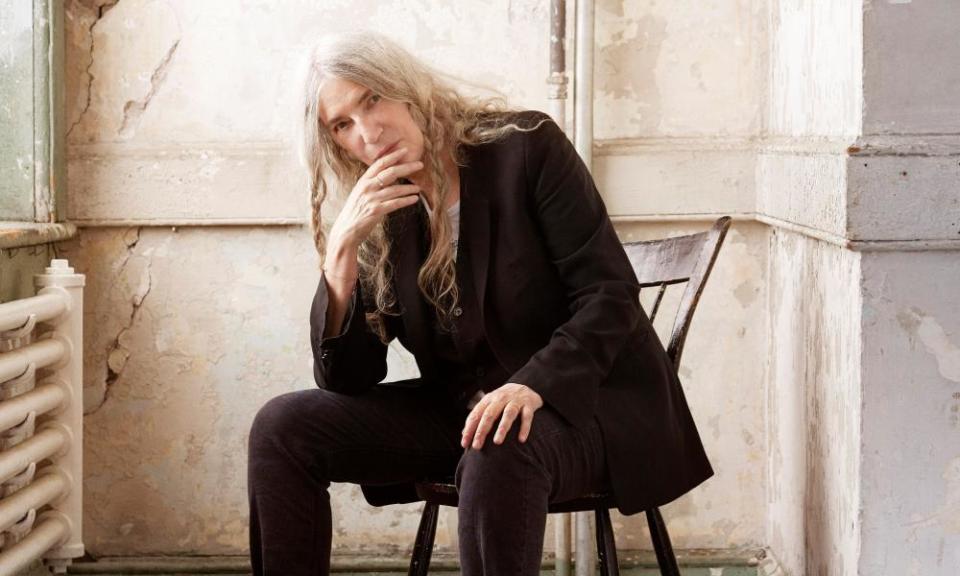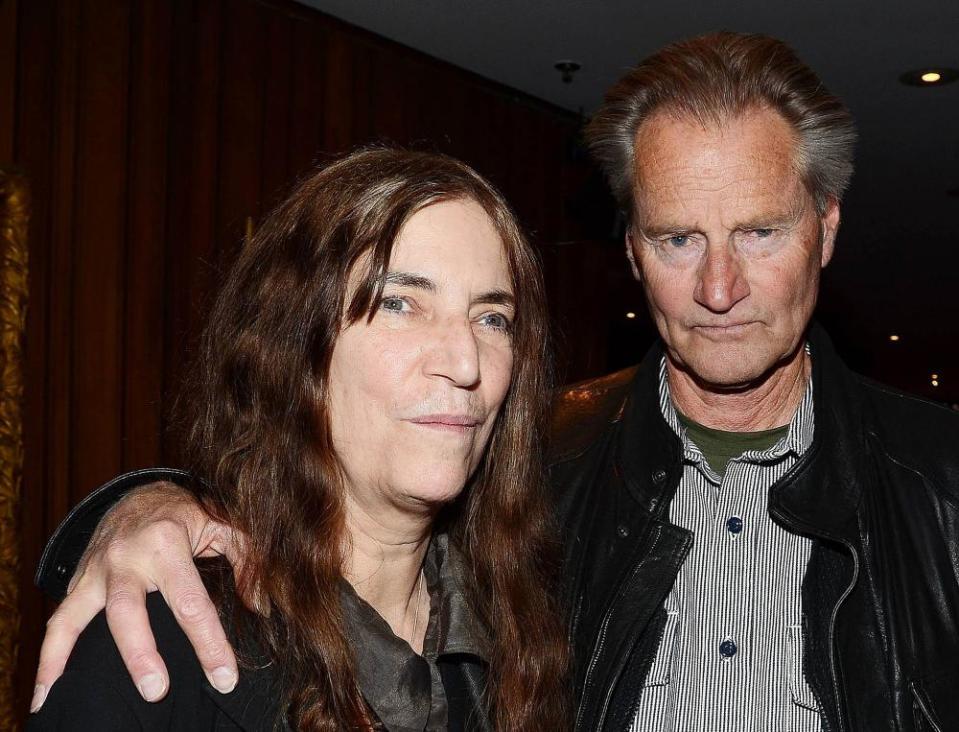Patti Smith: 'I feel the unrest of the world in the pit of my stomach'

Patti Smith, rock star, poet, visual artist and writer, won the 2010 National book award with her memoir Just Kids. The Year of the Monkey, her moving postscript – about loss, serendipity, friendship and hope – is out now in paperback (Bloomsbury).
Did you plan The Year of the Monkey or did it almost write itself?
Truthfully, I had no goal. It was the end of 2015. I’d had concerts at the Fillmore in San Francisco and was supposed to go on a trip with my good friend Sandy Pearlman. But he had an accident and was in a coma and I was without a plan. I don’t drive, so decided to linger to be in his proximity and, being alone, started keeping a journal. I find writing a journal is like having an imaginary friend.
Your book is partly about solitude. Do you like your own company?
I don’t require solitude but don’t mind being on my own. I’m not lonely when roaming about. It is partially age-related. I’m not seeking any particular companionship. I like to be on the move – in a cafe where there’s a bit of a din or on a train – that’s how I like to work. Solitude and being on one’s own are different. Being on your own, you’re open to adventure and often within an atmosphere created by others, which I find inspiring.
You write as if travelling incognito but people must keep recognising you?
I never travel incognito. I just go about my business – except in Italy where I’m extra loved and need someone to walk with me.
Are you restless?
Yes [laughs]. Even as a kid, I was a bit of a loner. I had siblings I loved and a few close friends. But I’m not a very social person. My biggest social work is when I’m on stage. I could go days without talking to anyone in particular.
I handle the moment of loss better now, but some days it's unbearable that certain people aren't here
Your writing celebrates friends – the photographer Robert Mapplethorpe and now the playwright Sam Shepard. When you think of Shepard, what image comes to mind?
I see Sam looking at me with a wry smile – he knew me so well – I miss him terribly. Sam was very protective, though he understood I’m pretty tough and can handle myself. We went through a romantic interlude but didn’t need that, we connected in so many ways. We trusted one another, respected each other’s work, had a similar sense of humour. We had an equal but masculine/feminine relationship which, at any age, is nice. He was like a friend but it was also like having a man in my life – for 50 years.
Does one loss prepare you for another?
I handle the moment of loss better now, it is the long haul that is difficult. Losing Robert was an enormous blow and took longer to process but I was younger. Yesterday, coincidentally, I missed him – all of a sudden – so much. I missed talking to him about art, the things that were bothering me, and just laughing. Some days, certain people – it becomes almost unbearable that they’re not here.

Were you scared turning 70?
Seventy was a number to be reckoned with. My parents lived until they were 83. For about a year, 70 was haunting. I had a jarring sense of chronology. Then I decided: do better, get healthier. During this pandemic, I’ve tried to focus on that. I do my own cooking, eat prudently, have lost any excess weight. I’m exercising, trying to keep mentally positive.
What was your mother like? Are you like her?
I never thought so until I got older. A lot of my best qualities come from her. My mother was strong, mettlesome – a survivor. We were a lower-middle-class family. My mother was a waitress her entire life, even up to the time she was eight months pregnant. She had a sense of humour. We felt her love, even when severely punished. The most wonderful quality in my parents was that they had no prejudices. They only had one rule: you had to be a good person, you had to be nice.
In which decade were you happiest?
I loved my childhood – my dogs. I loved the late 60s and early 70s because all my friends were alive. The 80s included my happiest years: I had my children, developed my writing, was close to my husband [Fred “Sonic” Smith], who did not live long. I lived a somewhat isolated life but developed an appreciation for the small things: a cup of coffee or a wonderful pear tree in the yard that dropped pears for me in the fall.
Has 2020 been more traumatic than The Year of the Monkey?
I’ve never experienced such a traumatic year. Every day I feel sickened, partially because of the atmosphere that the president has infused into our country: we’re more divided than ever. I feel the unrest of the world in the pit of my stomach.
You have a gift for seeing signs – but is life random?
Alexander the Great went to the oracle to ask how he would fare in battle, he was told he needed “God and luck”. Some things have a predestined, spiritual nature, others are chance – the written and unwritten coming together.
Sam Shepard said that you could do anything, and you comment in the book: “We were all young then and that was the general idea.” What is the general idea now?
We can still do anything but not until we take care of the two global crises: the pandemic and the environmental crisis. Saving the earth from mass environmental destruction has to be the first thing that we concentrate on.
Do you have regrets?
I don’t have regrets as an artist – I’ve always done the best I could. As a human being, my greatest regret is that I did not spend more time with my mother as she got older. I wish I could have one more coffee with her and let her tell me all her stories, for the hundredth time.
Do you still think, as you do in the book: “Something wonderful will happen – maybe tomorrow.”
I always think that…
• The Year of the Monkey is published by Bloomsbury (£9.99). To order a copy go to guardianbookshop.com. Free UK p&p over £15

 Yahoo News
Yahoo News 